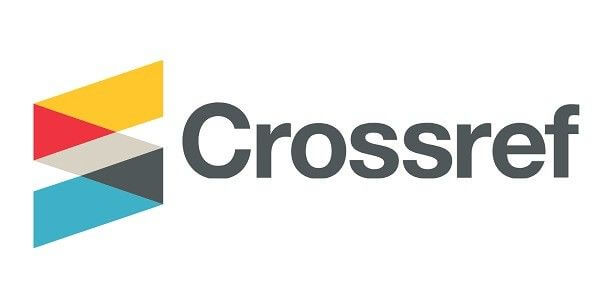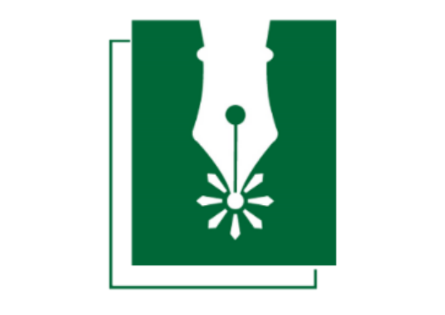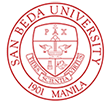Language-based approach in achieving Sustainable Development Goals: A qualitative meta-analysis
Keywords:
language-based approach, language theories, multilingualism, qualitative meta-analysis, sustainable development goalsAbstract
Scholars of language believe that where there is no language there is no development, thus language is pivotal in the implementation of Sustainable Development Goals (SDGs). This study aims to explore a language-based approach to the achievement of SDGs. Studies and reports describe language theories such as Edward Sapir-Benjamin Lee Whorf Linguistic Determinism Theory, Geoffery Leech’s five characteristics of language, Lev Vygotsky Developmental Theory, Jim Cummins Principles of Language – Basic Interpersonal Skills/Cognitive Academic Language Proficiency and other relevant linguistic concepts vis-à-vis sustainability goals and enumerate how the SDGs can be translated into a plan of action through the language-based approach. Specifically, the study focuses on Goal 3- Good health and wellbeing, Goal 4 - Quality education, Goal 16 - Peace, justice, and strong institutions, and Goal 17 - Partnership for the goal. Qualitative meta-analysis was employed using a five-step synthesis approach: 1) Exploring the field and defining research questions 2) search, selection, and appraisal of studies (sampling procedure) 3) data extraction 4) aggregation and 5) synthesis to analyze data from reports, symposiums, and studies as the main sources of data. In the iterative analyses, aggregates of concepts were identified: 1) language 2) language users 3) inclusiveness, equality, and sustainability 4) Sustainable Development Goals and language-based approaches. Other concepts were extracted from data such as diversity of language, language and culture, multilingualism, plurilingualism, multiculturalism, multilingualism, mother tongue-based multilingual education, literacy and reading skills, communication disabilities, minority vs. dominant languages, language loss and language maintenance, rights language to health care, inclusivity, vulnerability, diversity, equality, global citizenship, transparency and integrity, nationalism, national unity and collective identity and their centrality in the development, implementation, and successful completion of the SDGs.
References
Baart, J. L.G. (2003). Sustainable development and the maintenance of Pakistan’s indigenous languages. Conference on the state of the social sciences and humanities: Current scenario and emerging trends Islamabad, September 26-27, 2003
Balčiūnaitienė Asta (2018). Challenges of foreign language teaching and sustainable development competence implementation in higher education 10.2478/vtrr-2018-0004 Vocational Training: Research and Realities, 29(1), 2018 44
Brisset, N. & Radhika M. (March 2017). For function or transformation? A critical discourse analysis of education under the Sustainable Development Goals. Journal for Critical Education Policy Studies, 15(1). ISSN 1740-2743 https://www.researchgate. net/ publication/314243582
Creswell, J. W. & Poth, C. N. (2018). Qualitative inquiry and research design: Choose among five approaches, 4th ed. Sage.
Drape, T., Westfall-Rudd, LDM., & Lawrence, C. (May 2020). A qualitative meta-analysis examining equity and inclusion in undergraduate and graduate populations. https://www.researchgate. net/publication/341323420
Ezeh. N. G. & Obiageli, U.R. (2020). The role of language in achieving the world’s Sustainable Development Goals (SDGs). European Journal of English Language and Literature Studies. 8(6), pp.53-61
Forman, L., Ooms, G & Brolan, C. E. (Dec., 2015). Rights language in the Sustainable Development Agenda: Has right to health discourse and norms shaped health goals? International Journal Health Policy Management. ; 4(12). 799–804. Published online 2015 Sep 29. https://doi.org.10.15171/ijhpm.2015.171
Hussain, N., Jagoe, C., Mullen, R., O’Shea, A., Sutherland, D., Williams, C., & Wright, M. (2018). The importance of speech, language and communication to the United Nations sustainable development goals: A summary of evidence. International Communication Project.
Language, the sustainable development goals, and vulnerable populations at the church center for the United Nations, 777 United Nations Plaza, New York, on 11 and 12 May 2017 Symposium: Study Group on Language and the United Nations. an independent group of scholars and practitioners on matters related to the international use of language (Final Report)
Mweri, J. G. (2020). Sustainable development goals: Reaching people through their mother tongue. Linguistics and Literature Studies. http://doi.org.10.13189/lls.2020.080103
Nwanyanwu, A. U. (2017). The place of indigenous languages in sustainable national development in the twenty-first Century: The Nigerian perspective. International Journal of English Language and Communication Studies 3(3), ISSN 2545 - 5702
Obiegbu, I. (2015), The English language and sustainable development in Nigeria Open Journal of Political Science, 5(2) Article ID:54264,4 pages DOI: 10.4236/ojps.2015.52009.
Ollinger, A. (2012) Communication strategies in ELF. Academia. Communication_strategies_in_ELF-with-cover-page-v2.pdf
Reyes, C. M., Albert, R.G., Tabuga, A. D., Arboneda, A.A., Vizmanos, V. & Cabaero, C. C. (2019). The Philippines’ voluntary national review on the sustainable development goals. Philippine Institute for Development Studies.
Stein-Smith, K. (2016). The role of multilingualism in effectively addressing global issues: The sustainable development goals and beyond. ISSN 1799-2591 Theory and practice in language studies, 6(12), pp. 2254-2259
Sustainability | Free Full-Text | Quality education as a sustainable development goal in the context of 2030 agenda: Bibliometric approach | HTML (mdpi.com) International communication project(www.internationalcommunicationproject.com)
The Sustainable Development Goals Report (2021). United Nations. Department of Economic and Social Affairs in collaboration with more than 50 international agencies. http://The-Sustainable-Development-Goals-Report-2021.pdf (un.org)
Traore, D. (2017). The role of language and culture in sustainable development 30th - 31st October - 1st - 3rd November 2017, International Conference of the Consortium for Comparative Research on Regional Integration and Social Cohesion (RISC).
Vuzo, M. (2019). Implementation of sustainable language education in the Tanzanian context: A Critical review. School of Education, University of Dar es Salaam, Dar es Salaam, Tanzania African Education Indices, 11(1). ISSN 2276 – 982X
Wilhite, Z. B. (2013). Local languages of instruction as a right in education for sustainable development in Africa Sustainability, 5, 1994-2017; http://doi.org./10.3390/su505199
- PDF | 597
- Abstract Views | 1501
Published
How to Cite
Issue
Section
Copyright (c) 2023 Ester Rada

This work is licensed under a Creative Commons Attribution-NonCommercial-NoDerivatives 4.0 International License.











